On the wall in our downstairs family room, Sarah hung a framed family tree. Each side of the tree represents one of our families, and each person appears as a leaf on the tree. The branches go back about four generations and it’s a cute reminder of those who came before us, those who made us. My leaf keeps falling off the tree and it’s making me believe there’s some freaky cosmic relevance to it.
This family tree of ours was rooted in my mind as I wandered around the Glenfarclas Distillery with George Grant, the sixth generation of Grants to run the distillery, in the heart of Scotland’s Speyside region. How many things had been handed down through my family for six generations? That family tree on our wall only went back four. I could think of only one thing: DNA. Kinda sad, isn’t it?
Not many distilleries can claim such a long and unbroken string of stewardship. Over the last hundred years, many family distilleries have been bought up by drinks corporations, and, as with any acquisition, many of the unique signifiers and family trappings have faded and disappeared. Not so here. Robert Hay founded the Glenfarclas Distillery in 1836, but John Grant bought it in 1865 and the distillery has passed from father to son ever since.
It was a beautiful story to find. Of all the distilleries I visited on this trip to Scotland, Glenfarclas was the one I knew the least about. I’m not even sure I’d tried Glenfarclas before arriving to their pretty, open grounds in the shadow of Ben Rinnes. Glenfarclas means “glen of the green grassland,” and I could see why: the wide, green swath of the glen ran into the distance behind the distillery buildings.
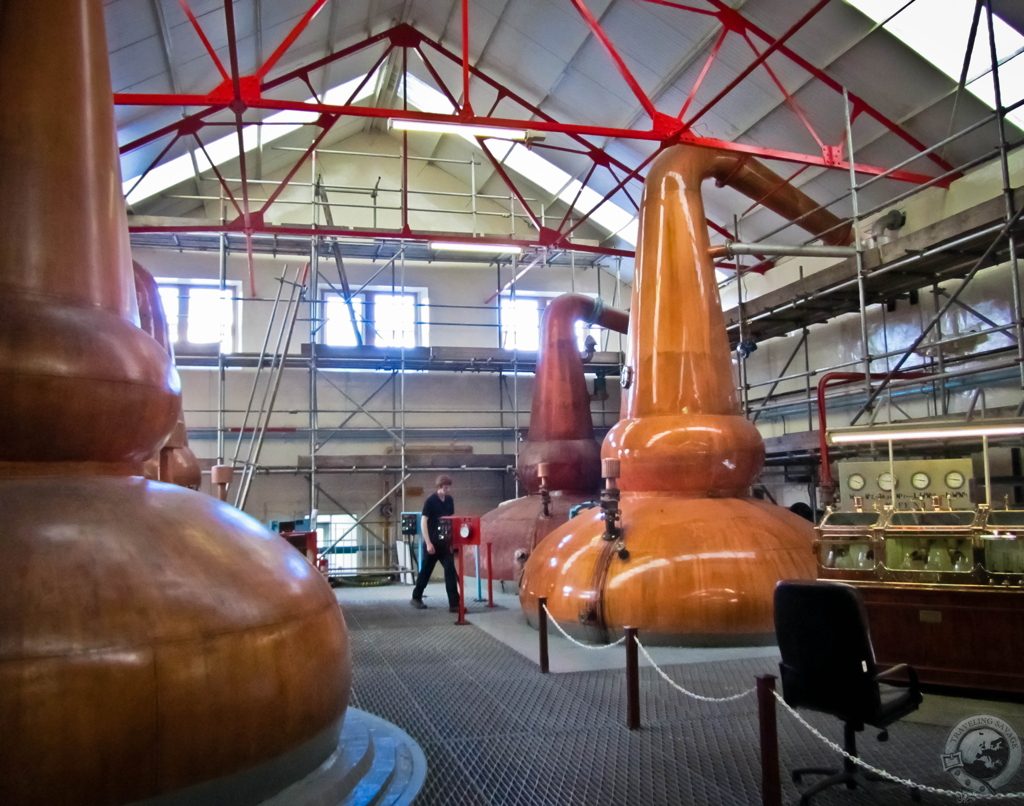
I met George in the warm, wooden visitors center. Not much older than me, companionable, and more than a little irreverent, George guided me through the inner workings of Glenfarclas. Signs providing detailed information about the distilling process decorated the different areas of the distillery and indicated that they see a lot of visitors here. Gliding through the series of washbacks and mash tuns, I couldn’t help but notice how clean and tidy everything was here. The deep red of the Glenfarclas logo appears as trim around windows and accents on support beams. There’s a lot of pride on display.
I’m always interested in a distillery’s stillhouse, and Glenfarclas has an open concept with clusters of stills hugging the walls. George points out an electronic switchboard that looks like a cross between Operation and a prop from the Death Star. Apparently it’s neither; it’s actually the control and monitoring station for the stills. If something should go wrong with this equipment, there aren’t many people who can fix it. And by “not many” I mean there might be one…one person who can service the equipment. I’m fascinated and frightened by the prospect. Stillhouses can be extremely dangerous when something goes wrong.
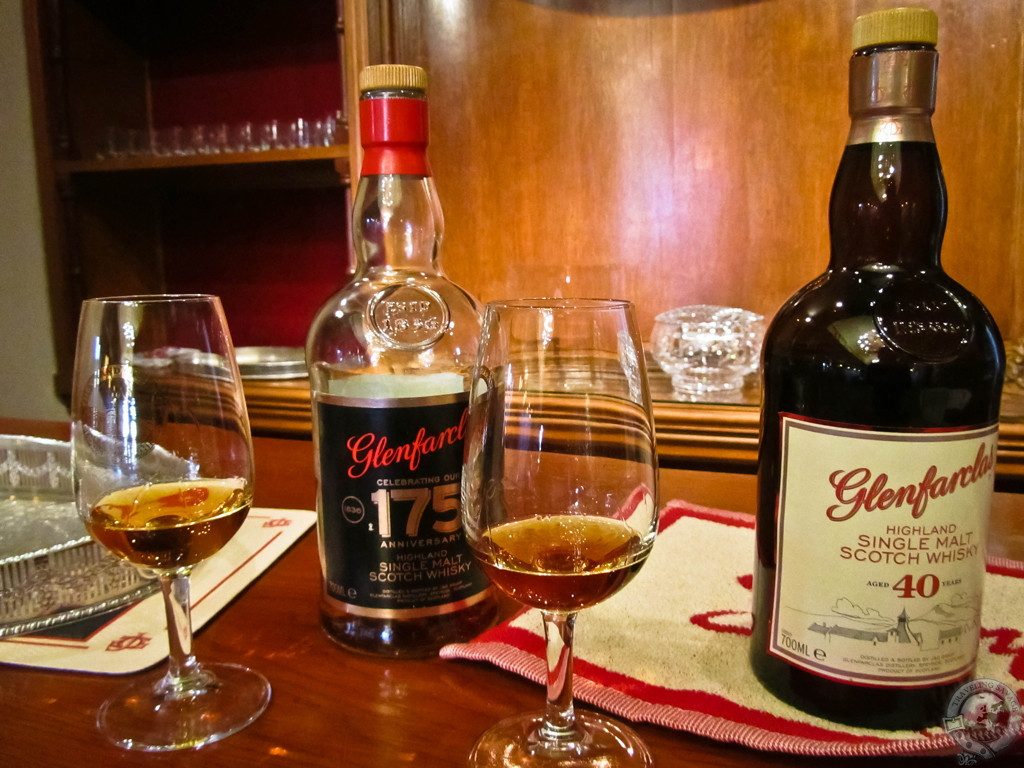
A light rain is spitting as George and I make our way back to the visitors center. He spent a couple years in Asia as a brand ambassador for Glenfarclas and mentions that single malt Scotch whisky hasn’t even scratched the surface of the market there. Inside the tasting room George squeezed behind the bar and brought up two bottles, the 40 Year and the 175th Anniversary. He poured me a generous dram of each, and I knew I was staring at a couple of heavy hitters.
In the bottle, the 40 Year looks like black tea. On the nose there’s a pleasant reek of chocolate, dried fruit, leather, and something earthy I can’t quite place. It’s pure dark sweetness on the tongue and it tastes like the most Sherried whisky I’ve ever had. More chocolate, something citrusy, caramel, and a flavor of cigars and tobacco leaves on the finish. It feels thick and sluggish like lava going down. This is a powerhouse dram.
The 175th anniversary of Glenfarclas just happens to be 2011. To mark this special occasion, the 175th was created by mixing together casks from six decades (50s, 60s, 70s, 80s, 90s, and 00s). A myriad of aromas and flavors spill out. Sometimes I noted heavy caramel and toffee and other sips yielded lighter fruits and floral accents. Calling this a complicated dram would be a severe understatement. There’s a lot of depth here.
Glenfarclas has a huge line of whisky and they routinely bottle 10, 12, 15, 21, 25, and 30 year expressions, as well as a cask strength offering. They also recently released The Family Casks, a set of 43 single cask whiskies, one from each year between 1952 and 1994. It’s the kind of release that illustrates the strength of Glenfarclas: they’re an independently-owned and operated distillery with a huge store of whisky from generations past. They control their destiny.
There’s a malt whisky trail running through the Speyside region, but you won’t find Glenfarclas on it. It was the last distillery I visited in Speyside and a good note to end on. You aren’t going to find a lot of glitz and novelty here. They make what they make, what they’ve always made. They made their own trail long ago, and they’re sticking to it.

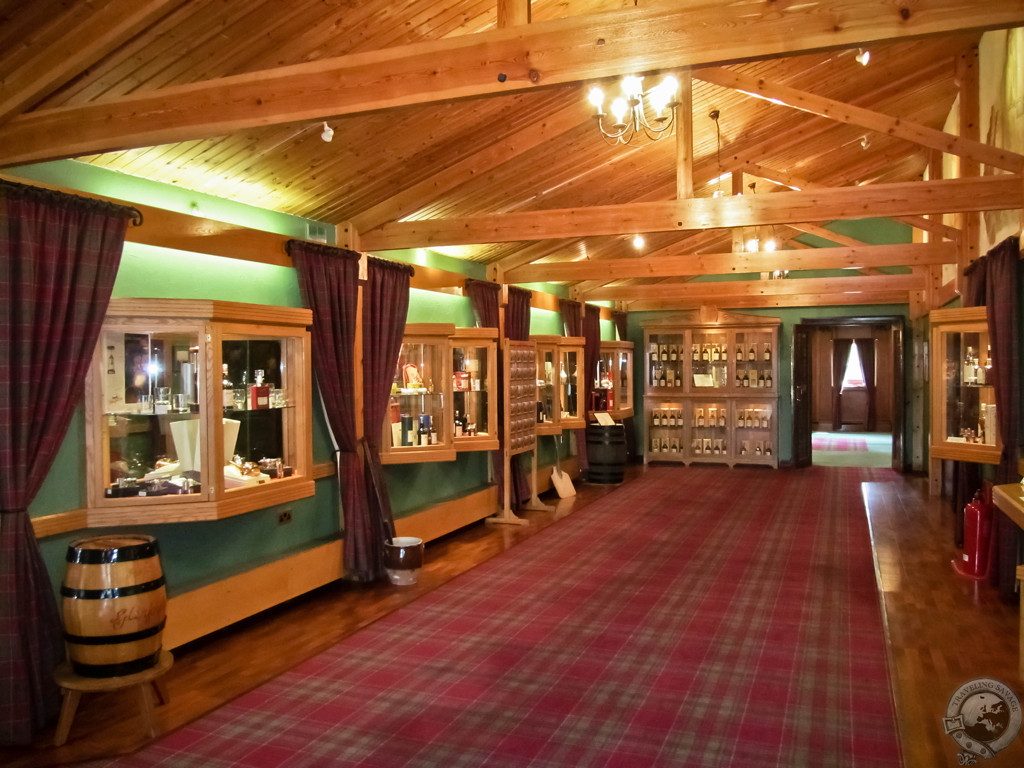
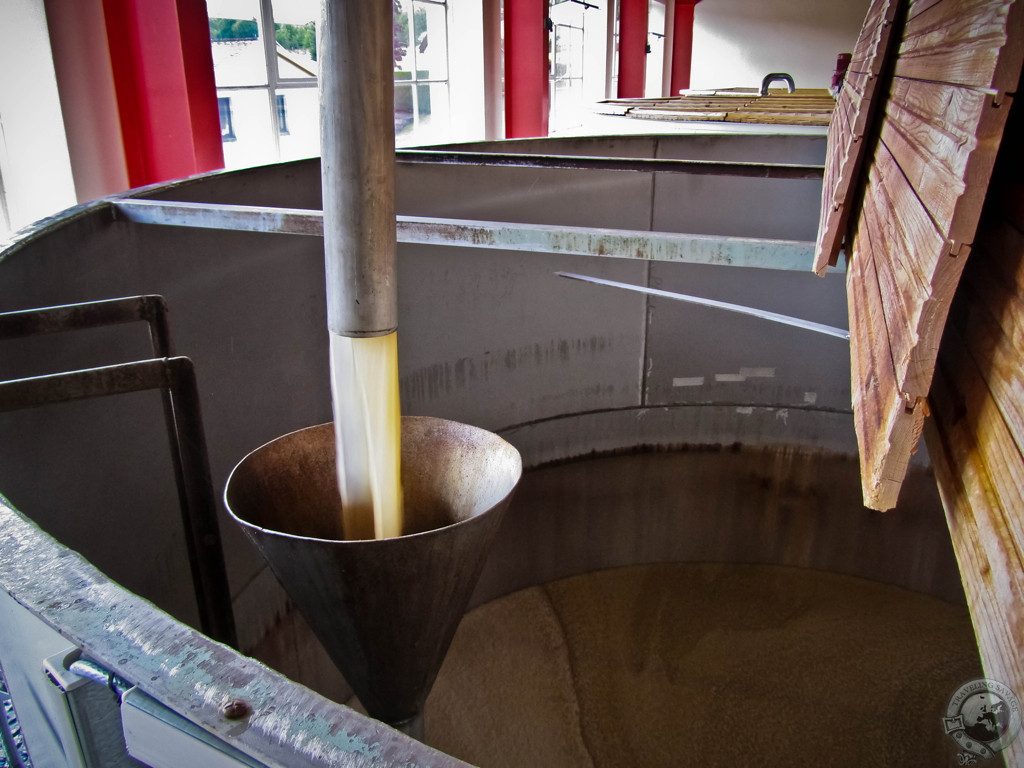
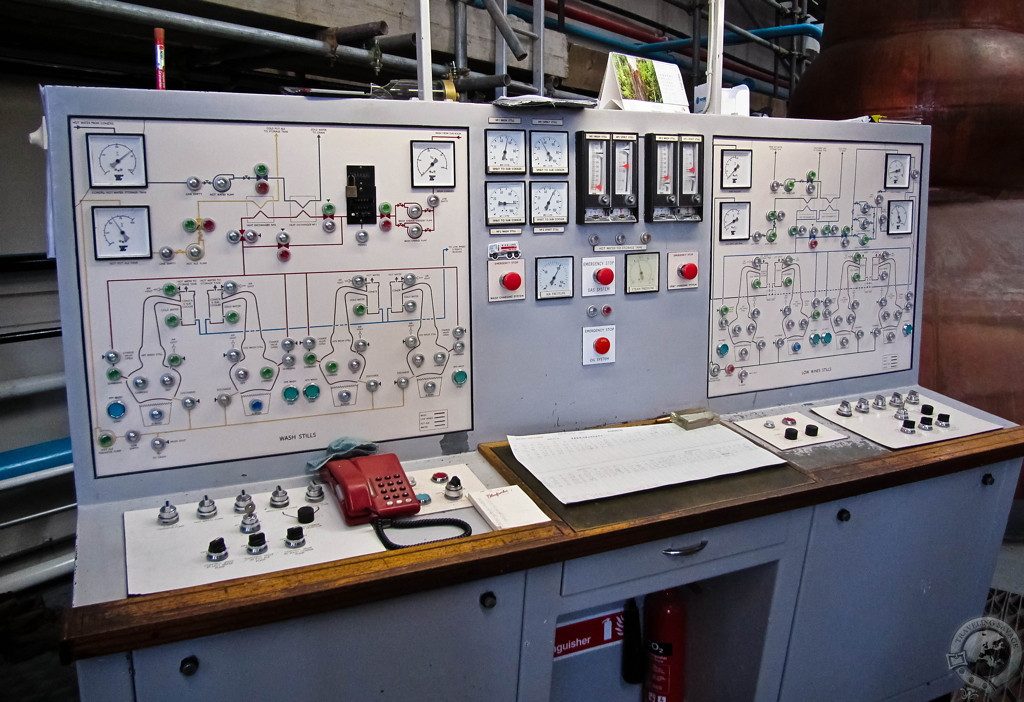
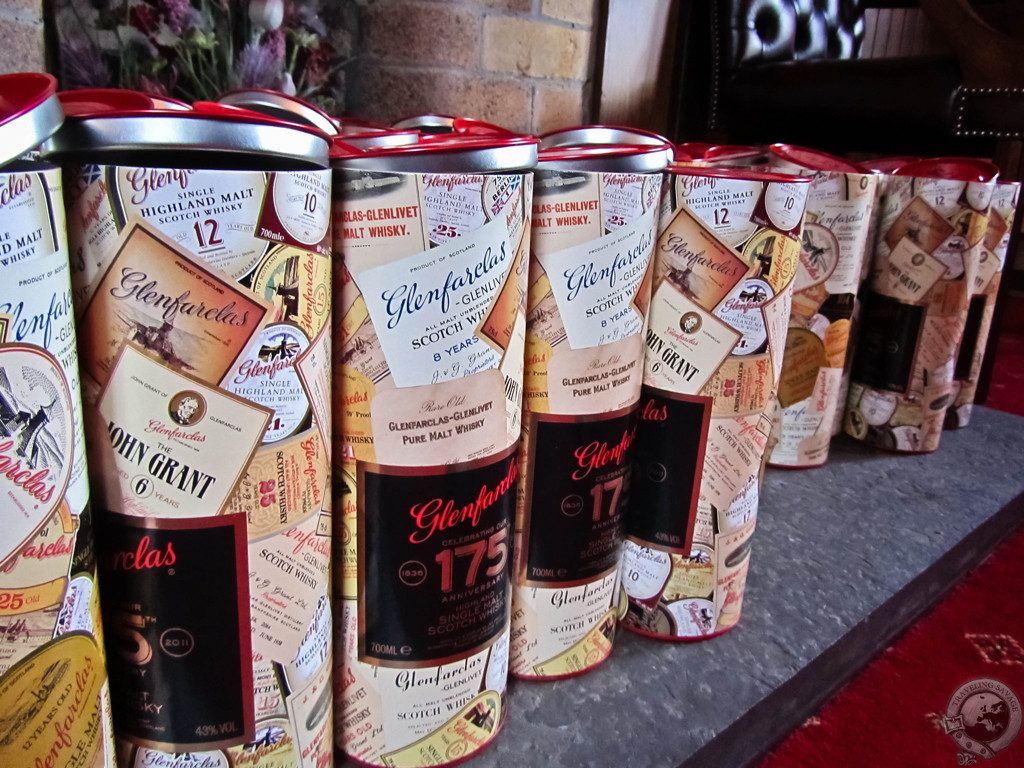
I’m glad you posted this. I can’t even trace my family history past my parents. It is very rare these days to still have a family business for that many generations still going strong. In addition, I am now thirsty 😉
This is a totally unfounded belief, but it seems like most family businesses don’t last very long. I hope Glenfarclas makes it to 7 generations and on.
A high school friend once told me that family businesses (based on his experience with Chinese restaurants in Hawaii; n=2, so maybe more anecdotal than a rule, but anyway. . .) don’t last for more than 3 generations. He says it’s because the grandpa/grandma pours their heart and souls into starting the restaurant which makes it successful; their kids experience and absorb some of their parents’ hard work and keep the business rolling; however, the grandkids have lost the passion that started the restaurant so the business declines and disappears. . . Anyway it’s really cool that the Grants could pass down the love and enthusiasm down for so many generations to keep the business going. That seems hard. Passion seems easily dilute-able from generation to generation, especially as lifestyles get easier with modernization. I wonder how they do it. Maybe passion for whiskey is much more resilient than passion for chinese food.
It’s a good theory, and I think it would hold true for both Chinese food and whisky. Perhaps the Grants have unusual strength of will.
I’ve got to try Glenfarclas. I’ve read other good reviews of their whisky but somehow I’ve never tasted it. I’m going to do it….soon.
I think you’d like it.
6 generations is so incredibly impressive. I think if you can create a sense of pride like they do here, it can be easy to have your family stick to the business. I mean, distilleries are important businesses.
Yes, very important. Glad we agree 🙂 Perhaps a strong sense of pride IS the key. Good point.
Incredible, I can’t imagine 6 generations of my family involved in the same craft, so far each generation seems to be as different form the last as can be. Damn you Keith, now you have me craving a single malt, and it is only 2 in the afternoon!
Lol, do you know how hard it is to write about whisky with such frequency in the morning?? While I’m at home, I drink single malts sparingly and only on the weekends.